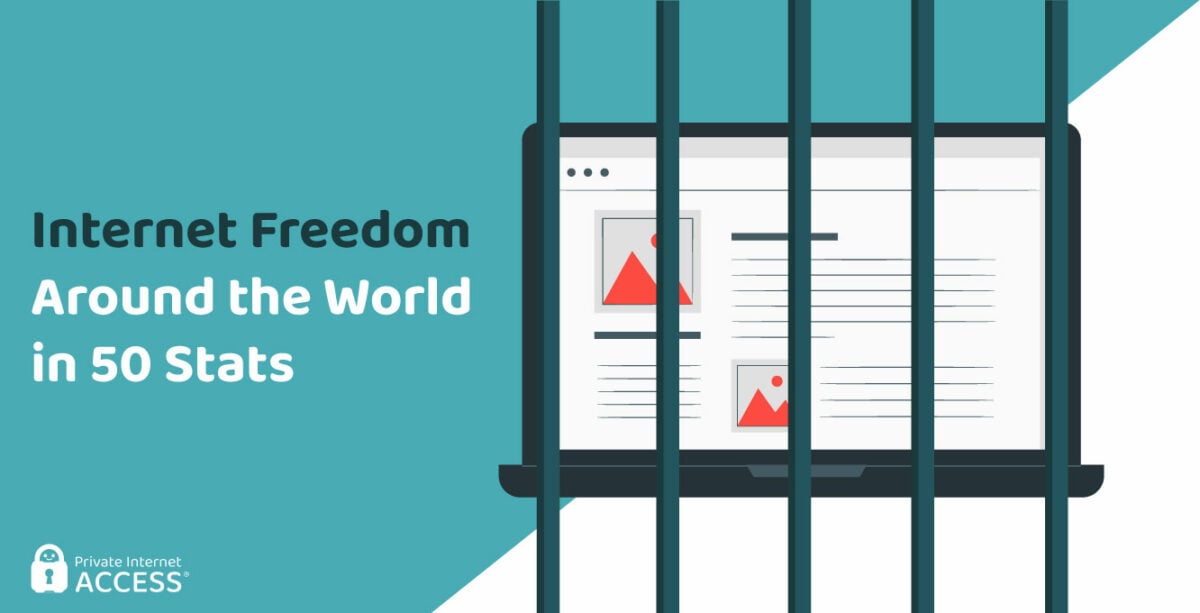
Almost every part of our everyday lives is closely connected to the internet – we depend on it for communication, entertainment, information, running our households, even running our cars.
Not everyone in the world has access to the same features and content on the internet, though, with some governments imposing restrictions on what you can do online. This severely limits internet freedom and, with it, the quality of life and other rights of the affected users.
Internet freedom is a broad term that covers digital rights, freedom of information, the right to internet access, freedom from internet censorship, and net neutrality.
To cover this vast subject, we’ve compiled 50 statistics that will give you a pretty clear picture about the state of internet freedom around the world. Dig into the whole thing or simply jump into your chosen area of interest below:
Digital Rights
Freedom of Information
Right to Internet Access
Freedom from Internet Censorship
Net Neutrality
The Bottom Line
The Internet in Everything: Freedom and Security in a World with No Off Switch







